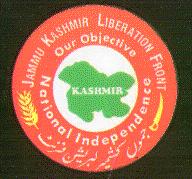Key Players
Key Players
Official Leaders
 Pervez Musharraf, President of Pakistan (r 1999 - present)
Pervez Musharraf, President of Pakistan (r 1999 - present)
Musharraf joined the Pakistani army in 1964 and trained as a commando at the military academy of Kakul. He was awarded a medal for gallantry during Pakistan's 1965 war with India, and served as a commando in the 1971 war with India. He became president in a coup after Prime Minister Nawaz Sharif tried to fire him over disagreements about Sharif's policies as a general.
 Atal Bihari Vajpayee, Prime Minister of India (r 1996, 1998 - present)
Atal Bihari Vajpayee, Prime Minister of India (r 1996, 1998 - present)
On October 13, 1999, he took charge as Prime Minister of India for the second consecutive term at the head of a new coalition government, the National Democratic Alliance. He was Prime Minister for a short period in 1996 and then elected again in 1998 and 1999. (India is the largest democracy in the world and holds elections on election years, in addition to whenever the government feels there is a crisis that would be helped by a change in officials.)Vajpayee has softened some of the more strident nationalist and anti-Muslim rhetoric of other members of her party.
Rebel Organizations
 Al-Faran
Al-Faran
A shadowy, terrorist outfit that is for kashmir acesion to Pakistan abducted six Western tourists in 1995. One of them, an American, escaped while another, a Norwegian, was brutally executed. The name Faran or Al-Faran is derived from the sacred mountain site in Saudi Arabia near Mecca. Nobody in the Valley had ever heard of this group at the time of the kidnappings, consequently nobody could even guess who these men were. (Picture of an unknown guerilla fighter.)
 The Harakut ul Ansar, also known as HUA
The Harakut ul Ansar, also known as HUA
an Islamic militant group that seeks Kashmir's accession to Pakistan - raised its visibility by kidnapping two British citizens in June (1994). The HUA was formed in October 1993 when two Pakistani political activist groups, Harakat-ul-Jihad al-Islami and Harakut-ul-Mujahideen, merged. According to the leader of the alliance, Maulana Saadatullah Khan, the group's objective is to continue the armed struggle against non- believers and the anti-Islamic forces. (Picture of a guerilla fighter killed in combat surrounded by Indian solders.)
 Hezb-ul Mujahedeen
Hezb-ul Mujahedeen
A leading pakistani group in Kashmir, and on of the more vocal, calling a cease-fire and then withdrawing it. Their leader, Syed Salahuddin, explains it this way, "we will never betray the noble cause of the liberation of Kashmir and will not allow anybody to do it. We have demolished the Indian propaganda that we are against peaceful settlement." According to a pro-India website, the group's speciallty is "killing hindu villagers in isolated regions of kashmir, angering muslim naighbors." Abdul Hamid Tantray, also known as "Commander Masod," was killed by India troops in July of 2001. He was the deputy chief commander and chief spokesman. (Picture of an unknown militant leader with his bodyguards.)
 Jammu and Kashmir Liberation Front
Jammu and Kashmir Liberation Front
Their mission is "to struggle against foreign occupation, gain independence and attain an honourable position amongst free nations of the world. Struggle to establish a political and social infrastructure based on the values of democracy, public welfare and social justice in the country." In their view, "The Issue of Kashmir is not a 'territorial dispute' between Pakistan and India. It is a question of national independence for over 13 million people, who are yet to exercise their unfettered right to self-determination as provided for in the UN Charter."
 Lashkar-e-Taiba, also known as LeT
Lashkar-e-Taiba, also known as LeT
The Lashkar e Taiba and its political wing called the Markaz Dawa Al Irshad have for many years been calling for the expansion of the so-called jihad to the rest of India from Jammu & Kashmir. The Lashkar-e-Toiba provides military training to its members and prepares them to wage jihad. (Picture of Abu Tahla, assassinated leader of LeT.)
Other Notable People
 Dr. Abdul Qadeer Khan, nuclear scientist
Dr. Abdul Qadeer Khan, nuclear scientist
Pakistan's equivalent to Dr. Strangelove, Dr Abdul Qadeer Khan is accused in the West of nuclear espionage and at the same time is Pakistan's nuclear hero as architect of the country's nuclear prowess. Khan worked at the British/German/Dutch Urenco uranium enrichment facility in the Netherlands in the early 1970s. After his return to Pakistan, a Dutch security enquiry revealed he had probably taken with him most of the facility's secrets and a list of its contractors. He was also named in numerous other Western inquiries and media reports about secret purchasing operations for components for Pakistan's uranium enrichment plant.
Home |
History |
Current Situation |
Timeline |
Weapons |
Nuclear Scare |
Key Players |
References
 Pervez Musharraf, President of Pakistan (r 1999 - present)
Pervez Musharraf, President of Pakistan (r 1999 - present)  Atal Bihari Vajpayee, Prime Minister of India (r 1996, 1998 - present)
Atal Bihari Vajpayee, Prime Minister of India (r 1996, 1998 - present)  Al-Faran
Al-Faran  The Harakut ul Ansar, also known as HUA
The Harakut ul Ansar, also known as HUA  Hezb-ul Mujahedeen
Hezb-ul Mujahedeen  Jammu and Kashmir Liberation Front
Jammu and Kashmir Liberation Front  Lashkar-e-Taiba, also known as LeT
Lashkar-e-Taiba, also known as LeT  Dr. Abdul Qadeer Khan, nuclear scientist
Dr. Abdul Qadeer Khan, nuclear scientist